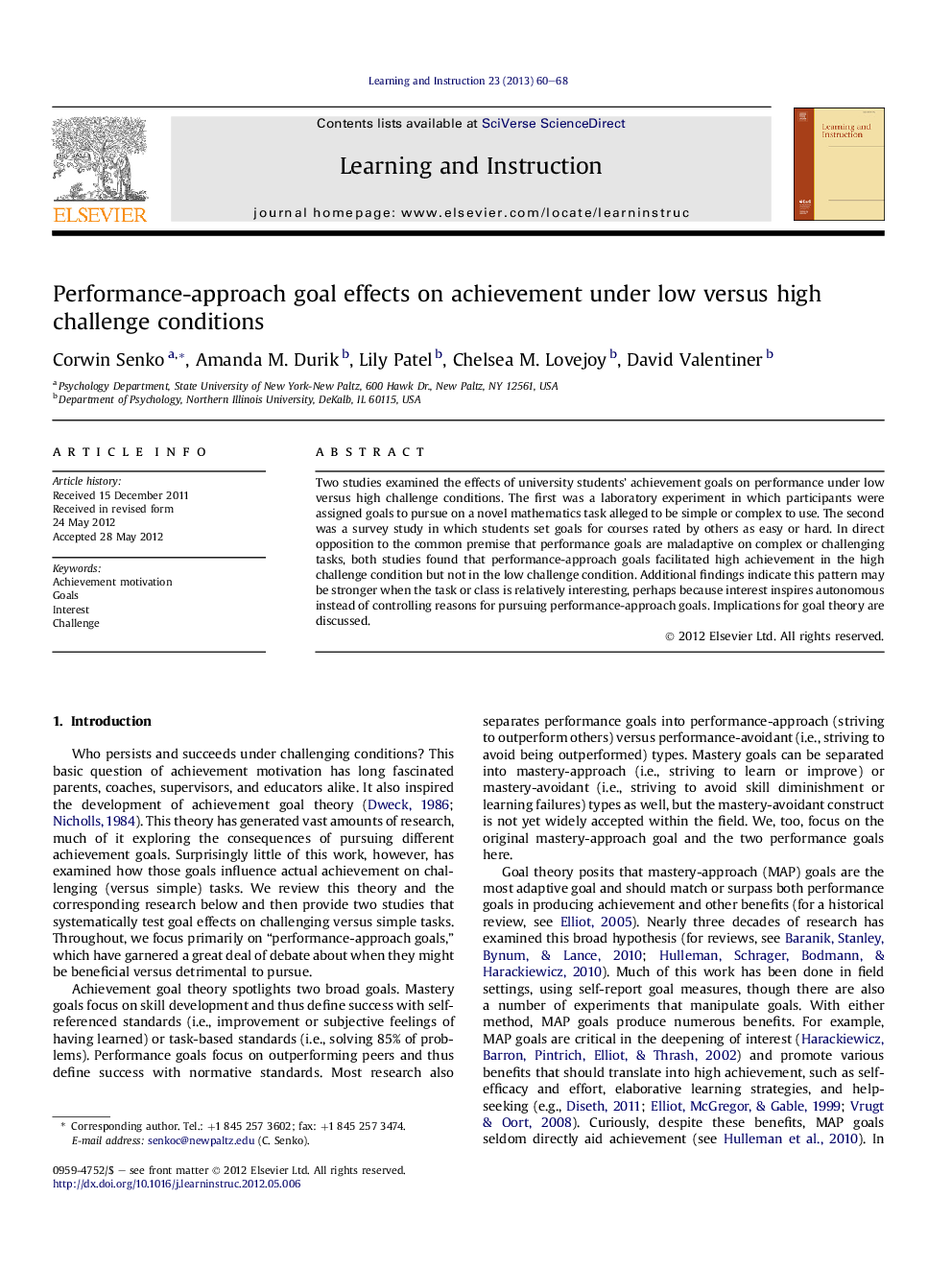| کد مقاله | کد نشریه | سال انتشار | مقاله انگلیسی | نسخه تمام متن |
|---|---|---|---|---|
| 365630 | 621211 | 2013 | 9 صفحه PDF | دانلود رایگان |

Two studies examined the effects of university students' achievement goals on performance under low versus high challenge conditions. The first was a laboratory experiment in which participants were assigned goals to pursue on a novel mathematics task alleged to be simple or complex to use. The second was a survey study in which students set goals for courses rated by others as easy or hard. In direct opposition to the common premise that performance goals are maladaptive on complex or challenging tasks, both studies found that performance-approach goals facilitated high achievement in the high challenge condition but not in the low challenge condition. Additional findings indicate this pattern may be stronger when the task or class is relatively interesting, perhaps because interest inspires autonomous instead of controlling reasons for pursuing performance-approach goals. Implications for goal theory are discussed.
► We tested achievement goals effects on performance at simple versus challenging tasks.
► Performance-approach goals aided success more on challenging tasks.
► This effect was pronounced for people with high interest in the task.
Journal: Learning and Instruction - Volume 23, February 2013, Pages 60–68